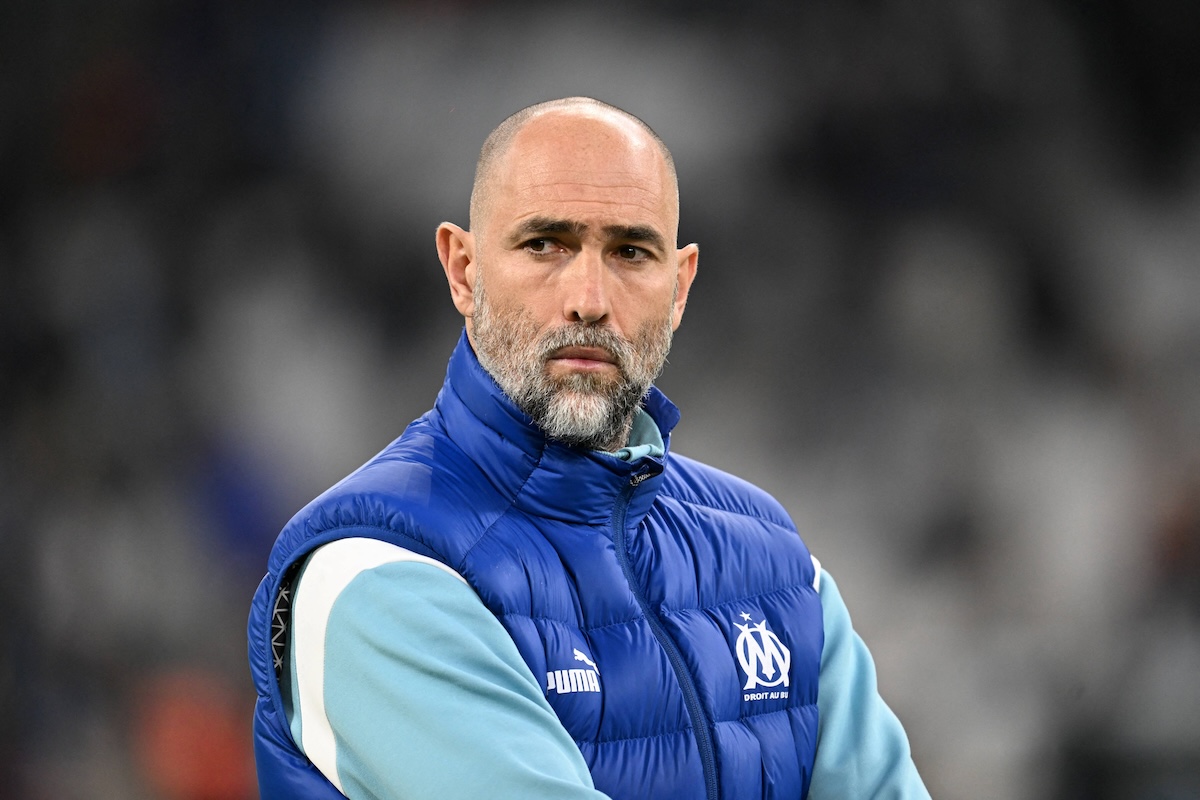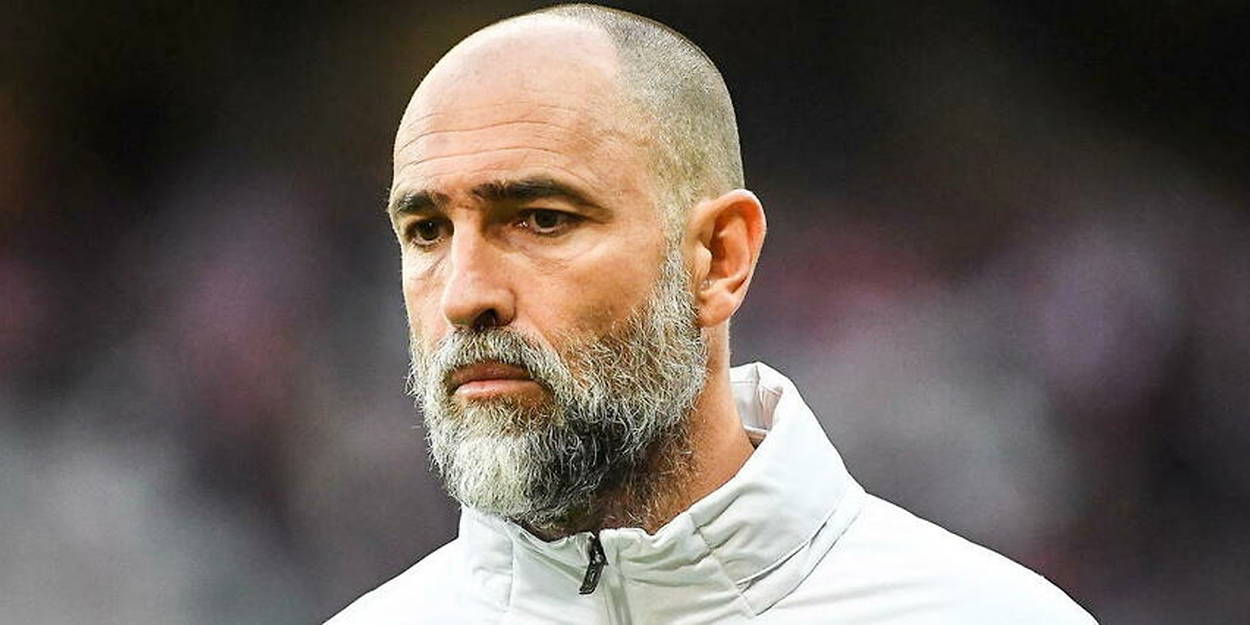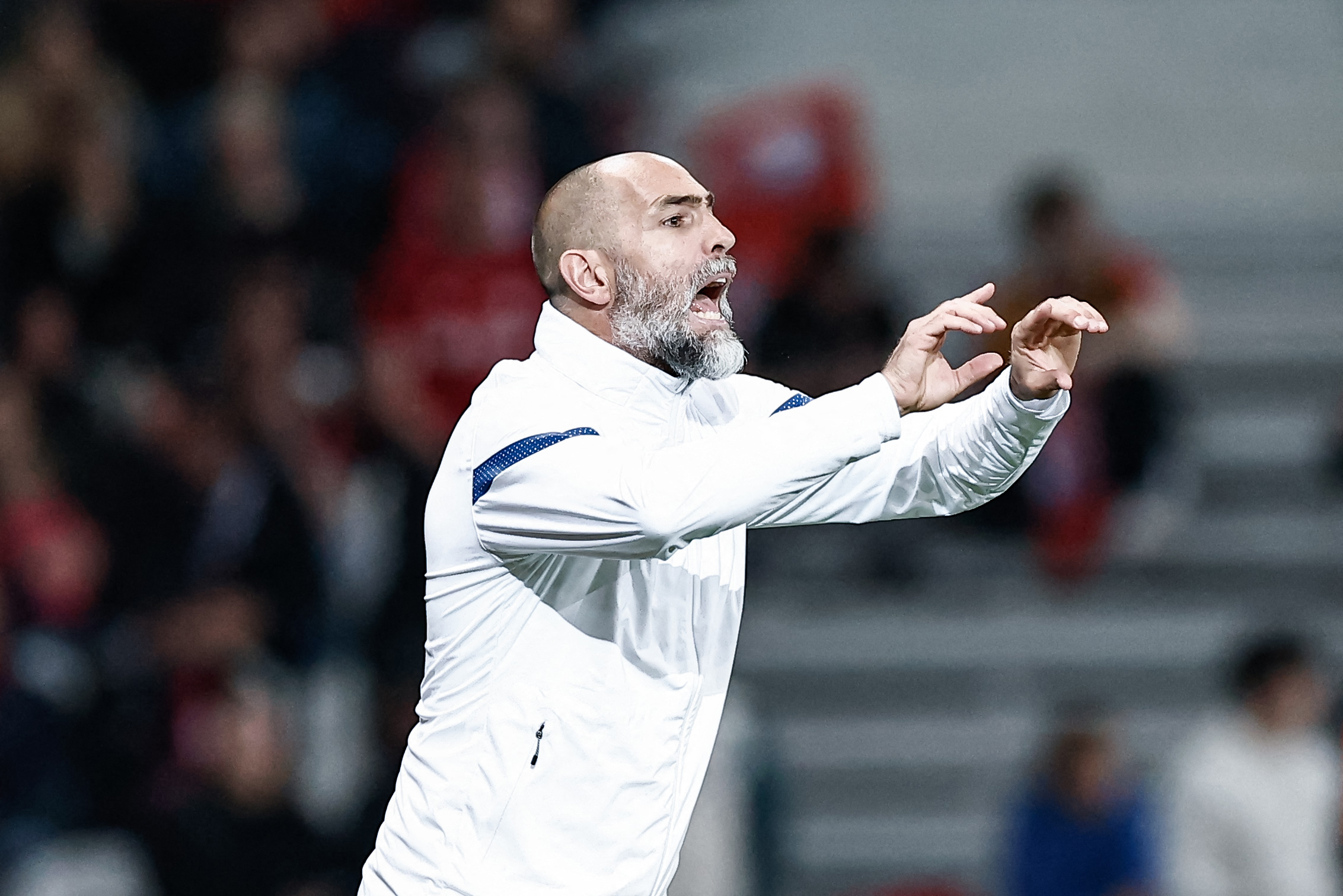When you hear the name Igor Tudor, it’s not just about football—it’s about passion, resilience, and a journey from player to manager that’s turning heads worldwide. In today’s fast-paced football scene, Tudor stands out as someone who’s not afraid to take risks and innovate. His story is one of grit, determination, and an unwavering commitment to excellence. So, if you’re curious about how Igor Tudor is shaping the future of football, buckle up because we’re diving deep into his world.
Now, let’s face it—football managers are like modern-day generals, and Igor Tudor fits the mold perfectly. From his early days on the pitch to his current role as a tactical genius, Tudor’s career trajectory has been nothing short of extraordinary. His ability to adapt, evolve, and inspire teams has earned him a reputation as one of the brightest young minds in the game.
But what makes Igor Tudor different? Why is he capturing the attention of football fans and analysts alike? Stick around because we’re about to break it all down for you. From his early life to his managerial career, we’ll explore every aspect of Igor Tudor’s journey and why he’s becoming a household name in football circles. So, grab your favorite snack, and let’s get started!
Read also:John Mcphee Kids
Biography: The Early Life of Igor Tudor
Before we dive into Igor Tudor’s managerial career, let’s take a trip down memory lane and explore his early life. Born on November 28, 1974, in Zagreb, Croatia, Igor Tudor grew up in a football-loving family. His love for the beautiful game was nurtured from a young age, and it wasn’t long before he started making waves in the junior leagues.
As a child, Tudor was known for his tenacity and skill on the field. He quickly rose through the ranks, earning a spot in some of the most prestigious youth academies in Croatia. His dedication and work ethic were evident even back then, setting the stage for the successful career that lay ahead.
Here’s a quick glimpse into Igor Tudor’s personal life:
| Full Name | Igor Tudor |
|---|---|
| Date of Birth | November 28, 1974 |
| Place of Birth | Zagreb, Croatia |
| Height | 1.88 m |
| Position | Defender (as a player) |
| Current Role | Football Manager |
From Player to Manager: The Transition
For many footballers, the transition from player to manager isn’t always smooth, but Igor Tudor made it look effortless. After retiring as a player, Tudor quickly realized that his passion for the game didn’t have to end on the pitch. Instead, he decided to take his skills to the next level by becoming a manager.
His early days as a manager were filled with challenges, but Tudor’s ability to learn and adapt helped him overcome obstacles. He surrounded himself with experienced mentors and soaked up as much knowledge as possible. This dedication to learning has been a key factor in his success as a manager.
Here are some key points about Igor Tudor’s transition:
Read also:Alejandra Amarilla
- Retired as a player in 2006.
- Began his managerial career in 2011 with NK Zagreb.
- Rapidly gained recognition for his tactical acumen.
- Known for his ability to motivate players and implement modern strategies.
Igor Tudor’s Playing Career: A Legacy on the Pitch
Before we move on to his managerial career, it’s important to acknowledge Igor Tudor’s achievements as a player. As a defender, Tudor was known for his physical presence, tactical awareness, and leadership qualities. He played for some of the biggest clubs in Europe, including Juventus and Inter Milan, and represented Croatia in international competitions.
During his playing days, Tudor was often compared to legends like Paolo Maldini and Franco Baresi. His ability to read the game and make crucial interceptions set him apart from his peers. But it wasn’t just his defensive skills that made him stand out—Tudor also had a knack for scoring crucial goals, making him a valuable asset to any team.
Here’s a look at some of the clubs Igor Tudor played for:
- HNK Rijeka
- Inter Milan
- Juventus
- Napoli
International Career: Representing Croatia
As a member of the Croatian national team, Igor Tudor played a pivotal role in some of the country’s most memorable matches. He was part of the squad that reached the semi-finals of the 1998 FIFA World Cup, a historic achievement for Croatian football. Tudor’s performances on the international stage earned him a reputation as one of the best defenders of his generation.
His leadership qualities and ability to inspire his teammates made him a natural choice for the captaincy. Even after retiring as a player, Tudor’s legacy as a defender continues to influence the next generation of Croatian footballers.
Igor Tudor’s Managerial Career: A Tactical Genius
Now, let’s talk about the present and future of Igor Tudor’s career. As a manager, Tudor has quickly established himself as a tactical genius. His ability to implement modern strategies and adapt to different playing styles has earned him praise from fans and critics alike.
One of the things that sets Tudor apart is his willingness to take risks. He’s not afraid to experiment with formations and tactics, and his teams often display a high level of creativity and innovation. Whether it’s pressing high up the pitch or utilizing wing play, Tudor’s teams are known for their dynamic approach to the game.
Success at Udinese Calcio
One of the highlights of Igor Tudor’s managerial career was his time at Udinese Calcio. He took over the team in 2021 and quickly turned things around, leading them to a respectable finish in Serie A. His ability to develop young talent and implement a cohesive game plan was instrumental in the team’s success.
During his tenure at Udinese, Tudor also earned a reputation for being a mentor to young players. Many of the players he worked with have gone on to achieve great success in their careers, a testament to his ability to nurture talent.
Tactical Philosophy: The Tudor Way
So, what exactly is the Tudor way? Igor Tudor’s tactical philosophy is centered around three key principles: possession, pressing, and transition. He believes that controlling the ball is crucial to success, but he also emphasizes the importance of pressing high up the pitch to disrupt the opponent’s game plan.
In terms of formations, Tudor is known for his flexibility. He’s comfortable using a variety of systems, from the classic 4-4-2 to more modern formations like 3-5-2 or 4-3-3. His ability to adapt to different situations and opponents is one of the reasons why his teams are so successful.
Player Development: A Key Focus
Another important aspect of Igor Tudor’s philosophy is player development. He believes that every player has the potential to improve, and he works tirelessly to help them reach their full potential. Whether it’s working on technical skills, tactical awareness, or mental toughness, Tudor’s focus on player development has been a key factor in his success as a manager.
Challenges and Controversies
No career is without its challenges, and Igor Tudor’s journey has been no exception. Over the years, he’s faced criticism for his aggressive style of play and his tendency to make bold decisions. Some have accused him of being too reliant on certain players, while others have questioned his ability to manage high-pressure situations.
Despite these challenges, Tudor has remained steadfast in his beliefs. He’s not afraid to make tough decisions, and he’s always willing to learn from his mistakes. This resilience and determination have been key factors in his ability to overcome obstacles and continue to succeed in the competitive world of football management.
Learning from Experience
One of the things that sets Igor Tudor apart is his willingness to learn from experience. Whether it’s analyzing match footage, seeking advice from fellow managers, or studying the latest trends in football, Tudor is always looking for ways to improve. This commitment to lifelong learning has been a key factor in his success as a manager.
Impact on Modern Football
So, what impact has Igor Tudor had on modern football? His influence can be seen in the way teams approach the game today. From his emphasis on possession and pressing to his focus on player development, Tudor’s ideas have helped shape the modern game.
Many of the strategies and tactics that Tudor employs have been adopted by other managers, and his success has inspired a new generation of young coaches. As football continues to evolve, Igor Tudor’s contributions to the game will undoubtedly be remembered for years to come.
Inspiring the Next Generation
One of the most rewarding aspects of Igor Tudor’s career has been his ability to inspire the next generation of footballers and coaches. Whether it’s through his work with young players or his willingness to share his knowledge with aspiring managers, Tudor has made a lasting impact on the football community.
Conclusion: The Future of Igor Tudor
In conclusion, Igor Tudor is a name that’s synonymous with passion, dedication, and innovation in the world of football. From his early days as a player to his current role as a manager, Tudor has consistently demonstrated an unwavering commitment to excellence. His ability to adapt, evolve, and inspire teams has earned him a reputation as one of the brightest young minds in football management.
As we look to the future, it’s clear that Igor Tudor has many more achievements ahead of him. Whether it’s leading a team to glory or mentoring the next generation of footballers, Tudor’s impact on the game will continue to be felt for years to come.
So, what do you think? Are you excited about Igor Tudor’s future in football? Let us know in the comments below, and don’t forget to share this article with your fellow football fans. Together, let’s celebrate the incredible journey of Igor Tudor and the impact he’s making on the beautiful game!
Table of Contents
- Biography: The Early Life of Igor Tudor
- From Player to Manager: The Transition
- Igor Tudor’s Playing Career: A Legacy on the Pitch
- International Career: Representing Croatia
- Igor Tudor’s Managerial Career: A Tactical Genius
- Success at Udinese Calcio
- Tactical Philosophy: The Tudor Way
- Player Development: A Key Focus
- Challenges and Controversies
- Learning from Experience
- Impact on Modern Football
- Inspiring the Next Generation
- Conclusion: The Future of Igor Tudor


